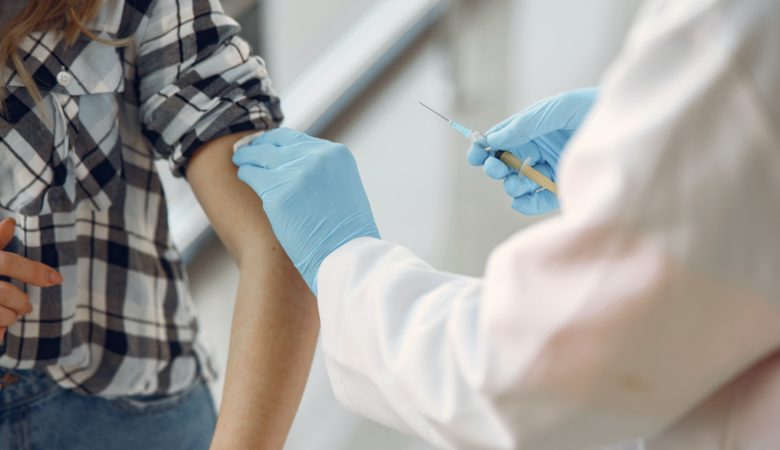Biden’s Global Innovation Rights Giveaway Poisons New Medical Breakthroughs
U.S. Trade Representative Katherine Tai announced in May that the United States would be supporting efforts by other countries to revoke the intellectual property rights of innovators that developed novel COVID-19 vaccines and other medical technologies.
Several countries have already signed on to support a proposal led by India and South Africa to “waive” large portions of the WTO’s Trade-Related Aspects of Intellectual Property Rights (TRIPS) agreement for COVID-19 vaccines and other medical supplies. The measure would strip pharmaceutical companies of their intellectual property rights and greenlight foreign firms to reproduce versions without licensing agreements or necessary know-how. Experts warn it would set back the world-class innovation ecosystem based in the United States for years to come.
The private enterprises that have spearheaded the research and development of the COVID-19 vaccines rely on patents to ensure not only that they are produced safely and reliably by manufacturers, but also to mitigate risk and eventually to collect revenue to fund future innovations, such as booster shots.
Dr. Amesh Adalja, senior scholar at the Johns Hopkins Center for Health Security, says that negotiating the TRIPS waiver has already “poisoned the whole atmosphere,” as “what was one of the cornerstones of enticing companies to be involved is now not something they can rely on.”
The “waiver” model was applied to the Zika pandemic by none other than senior socialist Senator Bernie Sanders. He lambasted the Trump administration for funding research by Sanofi for a Zika virus vaccine, complaining that a future patent would give the company “exclusive license to patents and thus a monopoly to sell a vaccine against the Zika virus.” Shortly afterward, the administration cut funding to the program and Sanofi quickly followed by suspending its research as well. Today, unlike for COVID-19 where in less than one year the world saw several highly effective vaccines be developed, there is still no vaccine for the Zika virus.
Intellectual property rights incentivize investment and mitigate risk. The Pfizer and Moderna coronavirus vaccines are the result of nearly twenty years of mRNA research preceding last year’s rapid development, rigorous testing, and thorough approval process. Pfizer alone spent $9 billion on research and development to create the vaccine that today has already inoculated tens of millions of people.
The immense upfront investment costs are not unique to COVID-19 vaccines; the average new medicine takes at least ten years from the time it is created to the time it enters the market, and the average research & development cost is nearly $3 billion. Ultimately, only 1 out of 5,000 new medicines will win final market approval. Strong IP rights reduce the risk that pharmaceutical companies bear, allowing for more new innovations to be developed.
So far, after India and South Africa revised their original proposal to include trade secrets and manufacturing processes in addition to patents and added a virtually unlimited time frame for the waiver to be active, the proposal has failed to achieve key support from the U.S. or Europe. These updates indicate that the proposal was always about whittling away intellectual property rights rather than getting vaccines into the arms of the world’s most vulnerable people.
The European Union, meanwhile, made their own formal proposal that included reducing trade barriers such as export restrictions, tariffs, and non-tariff measures on COVID-19-related goods and reiterated the existing TRIPS flexibilities. Several European leaders, such as Angela Merkel of Germany, have also expressed opposition to a TRIPS waiver for COVID-19 vaccines. Ultimately, the two plans are irreconcilable, and without a unanimous vote at the WTO, the waiver proposal is as good as dead.
The ball is in Ambassador Tai’s court, as she ignited the debate by stating that the U.S. would engage in negotiations to limit IP protections for the pandemic. Since the latest proposal by India, South Africa, and the developing country groups failed to meet the scope that the U.S. said it would negotiate (namely, only vaccine patents) and the European Union’s proposal completely avoided discussing an IP waiver, Ambassador Tai may be feeling the pressure to propose a middle-ground.
There is, however, no middle ground. IP rights are natural rights that allow inventors, artists, and entrepreneurs to own their work and control its use. In the case of COVID-19, those rights have secured 16.8 billion doses globally and ensure their safe and effective production. Without them the world should expect accelerated penetration of counterfeit, falsified, and substandard vaccines as well as limited investment and innovation in the pharmaceutical sector.
Governments around the world should instead continue to focus on decreasing trade and regulatory barriers, as such improvements would shorten supply chains and allow greater access to vaccines and medical equipment.
Photo credit: Gustavo Fring on Pexels

